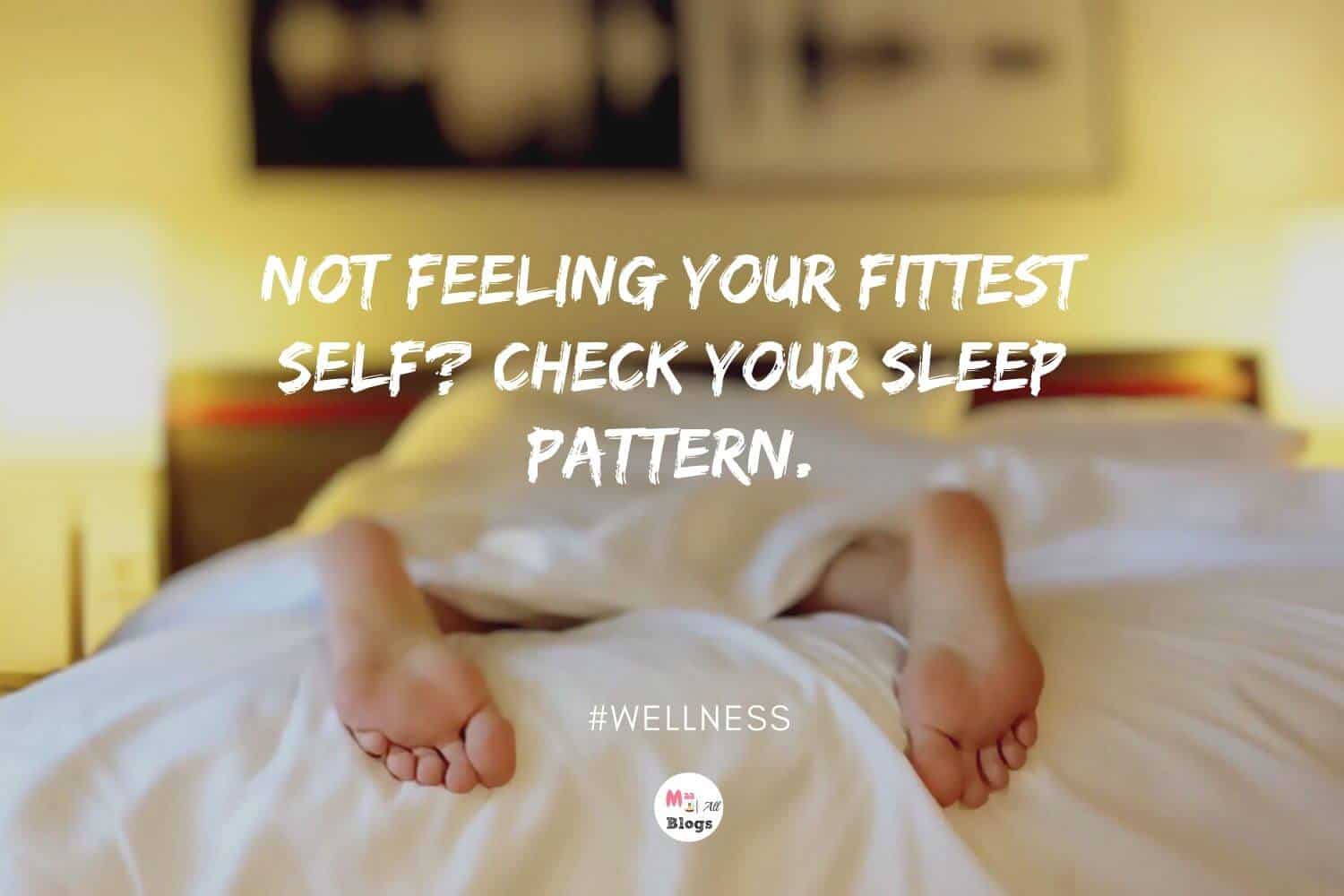
Not Feeling Your Fittest Self? Check Your Sleep Pattern.
Most of us have experienced that sad, grumpy feeling we experience due to lack of sleep. All of us, at some point in our lives have gone through the repercussions of not getting a sound sleep.
Our lives have become more demanding than ever. House, job, children and running other errands is enough to keep us on our toes all the time. In fulfilling these demands, we often tend to sacrifice our sleep and relaxation time. Statistics show that 51% of adults worldwide are sleep deprived. Another shocking revelation is that 93% Indians don’t get enough sleep. The most prominent reason being lifestyle changes.
Thankfully, our body is resilient and can bounce back as soon as our routine is on track. But do you know that sleep deprivation over a long period of time can be detrimental to your physical as well as psychological health?
Experts believe that absence of good sleep routine could have adverse effects in the long run. Some of these include a weakened immune system, hormonal fluctuations, weight gain, poor focus and anxiety.
What is more surprising is that despite going through a poor sleep cycle, most people do not take it seriously. Before things go out of control, shouldn’t we become more responsible to keep our bodies relaxed and rejuvenated? If yes, then we definitely need to examine our sleeping pattern.
How much sleep do we need?
The sleep requirement varies from person to person. It also depends on our daily routine. Days which demand strenuous physical activity might induce longer sleep duration. In women, sleep requirement changes with menstrual cycle.
But how much sleep do we require on an average?
The National Sleep Foundation (NSF) recommends the average sleep duration for specific age groups. According to NSF, while a newborn needs 14-17 hours per day of sleep, it reduces to 10-13 hours for pre-schoolers. Adults, until 64 years of age, need 7 to 9 hours of sleep every day.
Why can’t we sleep well?
I think most of us already know the benefits of a well-rested body. Then why are we struggling to achieve the minimum hours of good sleep? There could be some conditions such as obstructive sleep apnea or narcolepsy, which need medical intervention. However, for a normal person, sleep deprivation occurs due to our extremely demanding lifestyle, high stress, smoking, high alcohol and caffeine consumption. And of course, electronic gadgets!
Most importantly, we face sleep distress because we are not working towards it. And if you say it’s hard, know that celebrities like Jennifer Lopez and Akshay Kumar, despite their crazy schedules, maintain 7-8 hour sleep every day. Of course, they make changes in their routine (both of them consciously stay away from late night parties).
Tips for better sleep
If you are willing, achieving a good sleep routine would not be difficult. Try these tips…
1. Exercise
Dedicatedly practicing an exercise schedule significantly improves sleep, even for people with chronic insomnia. Studies show that moderate aerobic exercise helps people achieve quality sleep. However, since aerobics cause body to release endorphins (which make people alert), it is better to practice at least 2 hours before bedtime.
2. Diet
National Sleep Foundation explains that lack of sleep could create a vicious cycle – of tiredness, junk food and sleeplessness. To break this cycle, one has to take the path of following a clean, nutritious diet. Include more lean proteins, high fibre and low sugar foods in your diet such as sprouts, eggs, fish, fresh fruits and vegetables. And yes, eat at least two hours before going to bed.
3. Meditation
The calming effect of meditation effectively reduces stress which is the main enemy of our sleep cycle. Regular meditation practice strengthens the most important sleep brain region – which gives deep stage REM (Rapid Eye Movement) sleep. REM sleep is important because it is the restorative part of our sleep cycle.
4. Limit screen time
This is no surprise. The lights emitting from electronic and gadget screens releases the hormone called melatonin – which gives body an impression that it is day time. It prevents body from falling asleep. Make strict no gadget rule at least 3 hours before bed time. For children be cautious and careful of how much time they spend watching screen. And a TV your bedroom is a definite no no.
5. Set a routine
It is seen that maintaining a fixed sleep and wakeup time everyday helps regulate your body clock. Our bodies feel comfortable with predictable sleep schedules. This also helps body maintain temperature, hormone secretion and healthy functioning of organs.
6. Seek medical help
If none of the above methods work, or if you are suffering chronic insomnia, don’t delay medical help. Often doctors suggest blood tests to rule out medical conditions such as thyroid problems, which can disrupt sleep in some people. Inadequate amount of micronutrients are also sometime responsible for causing sleep problems.
Don’t let sleep be your forgotten friend
Dalai Lama said “sleep is the best meditation” and I couldn’t agree more. Only a well-rested body can perform to its best capacity. Science confirms that a good night sleep is vital to repair and restore cells, tissues and systems of our bodies. Sleep directly impacts very part of our body including brain, lungs and heart.
And yes, quality of sleep also affect metabolism and skin health. So if your gym sessions and clean diet is not yielding desired results, you better take a look at your slumber.
